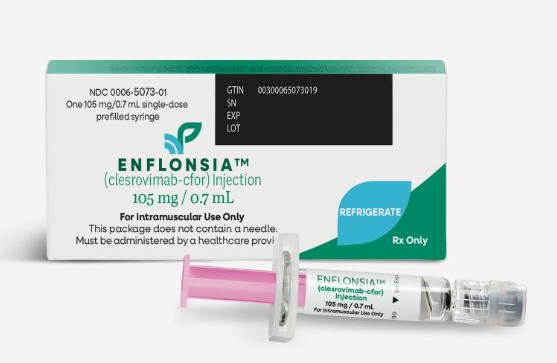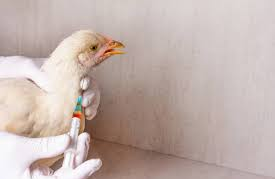The U.S. Centers for Disease Control and Prevention (CDC) has revised its quarantine guidelines for people who may have been exposed to the SARS-CoV-2 virus.1 Since the COVID-19 pandemic declaration last winter, the agency has recommended a 14-day quarantine period that was based on estimates of the upper range of the incubation period for SARS-CoV-2 infection. An adjustment to that policy was made on Dec. 2, 2020 when the CDC reduced the quarantine recommendations in an effort to increase community compliance.2
The CDC still maintains that a 14-day quarantine is the safest option after a person comes into contact with someone who shown symptoms of COVID-19, but it now lists shortened alternatives to the 14-day period.3 The agency recommends that a person, who has been in contact with someone known to have COVID-19, should quarantine, but that the isolation period can end after 10 days without needing a SARS-CoV-2 lab test if no symptoms are experienced.
In addition, if the person, who has been exposed to COVID-19 receives a negative SARS-CoV-2 test, then the quarantine period can end after seven days if no symptoms are experienced.4
Non-Compliance, Financial Hardship Factors in Revised Quarantine Recommendations
Scott Gottlieb, MD, the former commissioner of the U.S. Food and Drug Administration (FDA) said that the shorter quarantine period would make it easier for people to follow the CDC’s recommendations, since most people were likely to shorten the 14-day period on their own due to the social and economic burdens of quarantining for several weeks.5
Dr. Gottlieb said:
I mean, frankly, we probably should have done this sooner. Asking people to quarantine for a full two weeks, to self-isolate for a full two weeks because of an exposure is just going to drive people not to comply with the rules. We’re better off doing something that’s practical.6
According to Anthony Fauci, MD, director of the National Institute of Allergy and Infectious Diseases (NIAID), a 14-day quarantine period leads people to be reluctant to get a SARS-CoV-2 test because a positive test would put them out of work for two weeks causing economic hardships.7 He stated:
They don’t want to say, Well, I’m tested, and now I have to stay out of work, I may lose money, I’m not getting subsidized, and I might even lose my job. So, it might be that the balance—the better part of this equation—would be to encourage people more to get tested so that they’re not out of whatever it is that they need to be, their job, their employment, their source of income. That’s the real reason for it.8
Flawed PCR Tests for Diagnosing SARS-CoV-2 Infections
Robert Redfield, MD, director of the CDC said that the 14-day quarantine guidelines were made when the SARS-CoV-2 diagnostic testing was not readily accessible like it is today.9 However, medical professionals have pointed out that the use of PCR (polymerase chain reaction) diagnostic testing, which is the most commonly used to test for SARS-CoV-2, is flawed.
The PCR test is reportedly too sensitive and must be adjusted to eliminate people who have very low or insignificant amounts of the SARS-CoV-2 virus in their bodies. Since the PCR test’s threshold is so high, not only does it detect the live virus but the test also detects a few genetic fragments left over from a past infection that no longer poses a risk.10 Michael Mina, MD, PhD, an epidemiologist at the Harvard T.H. Chan School of Public Health compared it to finding a hair in a room after a person left it.11
People With COVID-19 and Those in Quarantine Allowed to Vote in Person
On Nov. 3, 2020, the CDC said that people in quarantine or sick with COVID-19 can be allowed to vote in person for the U.S. national elections. “Voters have the right to vote, regardless of whether they are sick or in quarantine,” CDC officials said.
The CDC gave the following advice to voters who are sick with COVID-19:
Voters who are sick or in quarantine should take steps to protect poll workers and other voters. This includes wearing a mask, staying at least six feet away from others, and washing your hands or using hand sanitizer before and after voting. You should also let poll workers know that you are sick or in quarantine when you arrive at the polling location.12
Click here to view References:
1 Dwyer C. CDC Shortens Its COVID-19 Quarantine Recommendations. NPR Dec. 2, 2020.
2 Centers for Disease Control and Prevention. Options to Reduce Quarantine for Contacts of Persons with SARS-CoV-2 Infection Using Symptom Monitoring and Diagnostic Testing. Dec. 2, 2020.
3 Lopez G. Why the CDC changed its Covid-19 quarantine guidelines. Vox Dec. 3, 2020.
4 See Footnote 1.
5 Higgins-Dunn N. The CDC is expected to shorten Covid quarantine time, something most everyone seems to agree on. CNBC Nov. 25, 2020.
6 Ibid.
7 Ibid.
8 Ibid.
9 Ibid.
10 Cáceres B. Coronavirus Cases Plummet When PCR Tests Are Adjusted. The Vaccine Reaction Sept. 29, 2020.
11 Lenthang M. Experts: US COVID-19 positivity rate high due to ‘too sensitive’ tests. MSN Aug. 30, 2020.
12 CDC. Tips for Voters to Reduce Spread of COVID-19. Nov. 1, 2020













5 Responses
The CDC needs to tell the Governors this and force changes. Since 11/17, In PA anyone who has been out of the state and coming back or just visiting the state will still need to quarantine for 14 days, even when they aren’t sick or they can take the test. I will never take a Corona test.
Good grief. It took 10 months and millions of “cases” to determine this? What a waste of humanity. I continue to never trust the CDC, WHO, FDA, Fauci, Gates or even my doctor’s advice.
“…the CDC reduced the quarantine recommendations in an effort to increase community compliance.”
That pretty much says it all. If they really believed this disease to be as deadly as claimed they would NEVER have reduced the recommended quarantine recommendation just to achieve some sort of increased “compliance”. The lack of logic is simply astounding…
I think it is odd that they are just now finding out that a shorter quarantine is ok. Seems pretty fishy to me.
The whole thing has been “fishy” from the start. Imposed lockdowns without any scientific basis, two flawed models, the mask mandates after “flattening the curve” in June & the CDC & WHO both supporting mask wearing due to political rather than medical pressure. The summer decrease in cases ( due to vitamin D & being outdoors more). If we can’t trust those with the power (CDC, WHO, FDA) to do no harm then who’s left?